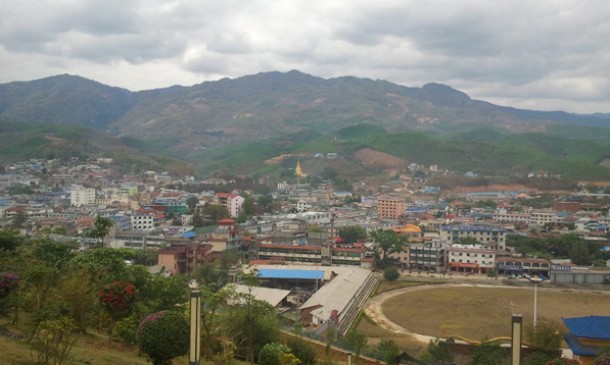RANGOON — Burma’s ethnic armed groups are considering convening at the headquarters of the powerful United Wa State Army (UWSA) in northern Shan State to discuss the potential signing of a nationwide ceasefire accord, a UWSA representative said on Monday.
“Some [ethnic] leaders told us that they will come if the meeting is held in our area, but for some leaders we are not sure yet as we do not have a chance to talk to them,” said Aung Myint, a UWSA spokesperson.
“We have not sent an invitation yet to all ethnic armed groups. [But] we told them that we would welcome holding a meeting in our area of control,” he told The Irrawaddy.
Aung Myint said some leaders of Nationwide Ceasefire Coordination Team (NCCT), which represent 16 ethnic groups engaged in nationwide ceasefire talks with the government, had contacted the UWSA to ask whether they could hold the conference at Wa headquarters in Panghsang, a town located on the Burma-China border.
NCCT representative Lian H. Sakhong told BBC Burmese language that the ethnic groups are considering convening in either the UWSA area, the Kachin Independence Army’s Laiza headquarters, or at the Karen National Union (KNU) area of control.
Last week, the NCCT and the government’s Union Peacemaking Working Committee (UWPC) succeeded in negotiating an in-principle agreement on the content of a ceasefire accord text. The understanding between the sides represents a potential breakthrough if the government, the Burma Army and a significant number of ethnic armies can sign the ceasefire in coming weeks.
NCCT representatives have said they need to hold a conference with the leaders of their ethnic groups to discuss if each group can accept the content of the more than 100-point text, which has been kept under wraps.
State media have celebrated the in-principle agreement as a historic breakthrough and government negotiators have said Naypyidaw is ready sign an accord that could help end Burma’s decades-old ethnic conflict.
It is understood, however, that a number of key political differences—such as disarmament of ethnic armies, federal autonomy for ethnic regions and the army’s demand that the groups come under the 2008 Constitution—have been left out of the text. These issues will have to be discussed in the extended political dialogue phase that is supposed start soon after the accord’s signing.
The UWSA are Burma’s most powerful rebel army, with an estimated 20,000 soldiers under arms and sophisticated Chinese-supplied weapons. The Wa have had a fairly stable ceasefire with the government for more than two decades. The group controls are large swathe of territory between the Salween River and the Burma-China border called the Wa Special Region.
The UWSA have observed the ceasefire talks but are not a NCCT member.
Aung Myint said the UWSA would consider joining the nationwide ceasefire accord after it was signed, adding, “We would need to talk about it more, before we could sign.”
Naypyidaw is likely to accept the Wa as a signatory to an accord, but has objected to several other groups that are considered NCCT members. It declines to recognize the Kokang rebels of the Myanmar Democratic Alliance Army (MNDAA), the Arakan Army and several other small ethnic armed groups.
Since February, the Burma Army has been engaged in fierce fighting with the MNDAA is northern Shan State, where tens of thousands of civilians have been displaced and dozens of soldiers and rebels have been killed.

















